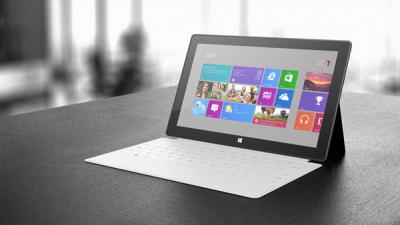Should software and online vendors be in the hardware business?

Microsoft recently unveiled its Surface tablet running Windows 8, representing something very new for the vendor: it's first major foray into the enterprise and computer user hardware space. Other formerly all-software companies have also been getting into hardware. Google offers its Nexus tablets, manufactured by Asus. Amazon has been in the hardware space with Kindle. A couple of years ago, Oracle became a hardware vendor in its own right when it acquired Sun Microsystems, with its line of servers, workstations and appliances.

It would seem a trend -- major software vendors getting into hardware sales. But is this a good strategy? For years, in fact, many major tech players have been running away from the hardware model, which is highly commoditized. Apple stands out as an exception, with its tightly integrated iPad, iPhone and iMac offerings.
The hardware approach works only if the hardware products are employed as a lever to draw subscriptions and software sales, say some experts. Microsoft sees the opportunity, and Amazon clearly has realized an advantage as a way to sell content. However, software and online companies need to tread carefully in this space, as it is fraught with peril.
"At present, this model is limited to only a few players," says Andrea Matwyshyn, legal studies and business ethics professor at UPenn Wharton. "The services model definitely works for Amazon, given its content library with books and its expansion into [streaming] movies and TV. [But it] is more challenging for those companies without content licensing." On the other hand, companies focused solely on hardware, such as Dell, Hewlett-Packard and Lenovo, face the prospect of falling profit margins as more diversified firms find new ways to monetize hardware devices."
The enterprise market is a different animal than the consumer market. A healthy mix of hardware, software and subscription offerings can be a strength for vendors selling into the enterprises. "Services mean something different in the enterprise context -- more consulting than apps or content," says Wharton legal studies and business ethics professor Kevin Werbach. "Having a foot in hardware as part of an integrated package is valuable; that is one reason Oracle bought Sun Microsystems. But none of the major enterprise IT players is focusing on hardware as the key differentiator or revenue generator anymore."
In fact, as reported in PwC’s latest US technology M&A Insights Q3 2012 report, big tech vendor deals have been down, indicative of an underlying shift away from transactions in both hardware and traditional manufacturing-based technologies. “As the larger technology companies evaluate their hardware portfolios and pursue potentially higher-margin software and service offerings, a wave of new acquisitions could be on the horizon as these traditional businesses change hands and new acquirers seek greater cost efficiencies,” according to Rob Fisher, PwC’s U.S. technology industry transaction services leader.